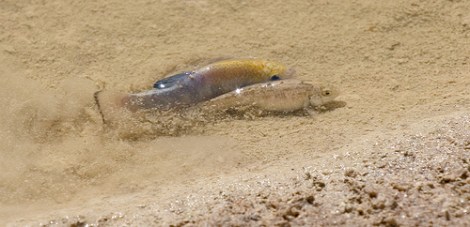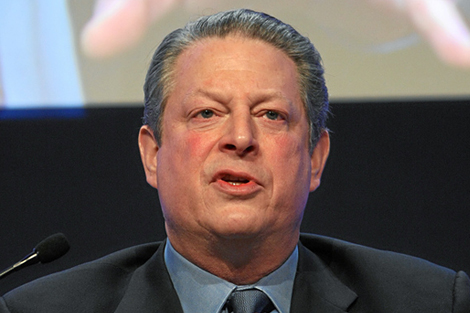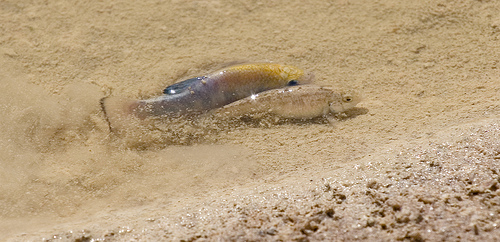
n8agrinPupfish that are not mutants. Yet.
The Devils Hole pupfish is basically doomed: Despite heroic efforts to save the endangered species, there are fewer than 100 of it left. Even when they breed, the babies don’t do very well — most likely because they’re burdened with an overabundance of crappy DNA. But there is one population of the fish that’s thriving, according to Wired. It’s a population that accidentally bred with a different species, the Ash Meadows Amargos pupfish. Those fish, which have a few extra genes and an extra set of fins, are doing spectacularly, filling “floor-to-ceiling tanks” in the lab where they live.
Too bad they’re mutant hybrids, right? Not real Devils Hole pupfish, the ones we’re trying to save. But what if, Wired asks, the only way Devils Hole pupfish will survive in any form is as mutants? They won’t be quite the fish we first found. They’ll have those extra fins. Does that count as saving them?
This idea makes conservationists nervous. What are we doing if not trying to undo the messes we’ve made?
Nature makes hybrid mutants all the time. Plus, the whole idea of a species is something that humans made up, and it’s something we don’t have a very clear definition for.
Here’s the key, Wired explains: “Devils Hole and Ash Meadows Amargos pupfish are more similar genetically than many other organisms categorized as a single species. They’re more similar than a human being from Kenya and one from, say, Scandanavia.”
OK, so maybe it is possible to save an endangered species by changing it just a little bit. But there’s a flip side to that power, Wired writes. It makes the whole idea of conservation, well, complicated:
It ends with us becoming architects, engineers, and contractors for entire ecosystems. The old approach involved fencing off swaths of wilderness and stepping aside. In the new order, we’d be the stewards not just of land or wildlife but of individual chromosomes.
That’s an exciting idea, but also high-stakes. The more we mess with nature, the bigger mess we could potentially make. But in the meantime, who wants some gills and a tail?



